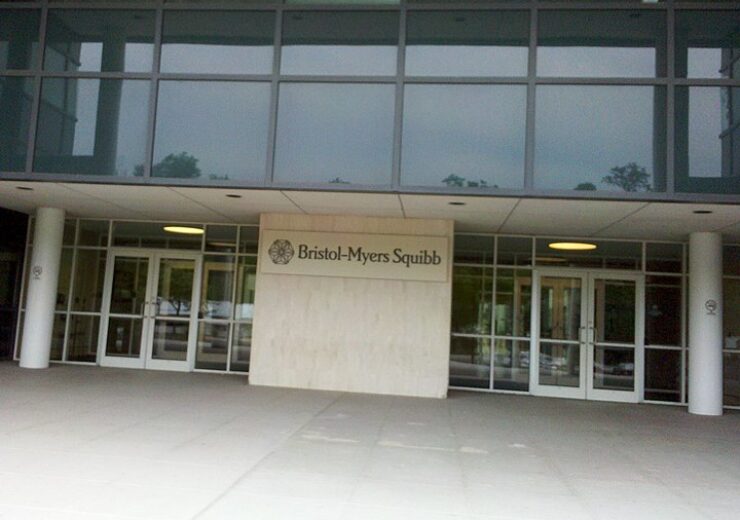Forbius develops a portfolio of selective potent inhibitors of TGF-beta 1 & 3, which mediate immunosuppression and fibrosis

Entrance to the Bristol-Myers Squibb building in New Jersey. (Credit: Jonathan Schilling/Wikipedia.)
US-based biopharmaceutical firm Bristol Myers Squibb has agreed to acquire Forbius, a privately held clinical-stage protein engineering firm, for an undisclosed amount.
Forbius is engaged in designing and developing biotherapeutics for the treatment of cancer and fibrotic diseases, and its team of TGF-beta biology experts designed a platform of TGF-beta inhibitors to deliver superior potency and selectivity against the principal disease-driving isoforms 1 & 3.
Under the terms of the agreement, Bristol Myers Squibb would acquire Forbius’s TGF-beta programme, which includes the lead investigational asset AVID200, an advanced TGF-beta 1 and 3 inhibitor.
AVID200 has completed Phase 1a clinical trials for fibrotic and solid tumours indication. Bristol Myers Squibb is expected to focus research and development efforts of AVID200 in oncology and would advance the asset in other disease areas, including fibrosis.
Bristol Myers Squibb executive vice president and research and early development president Rupert Vessey said: “With this acquisition, we extend our leading position in oncology by including new pathways that complement our expansive oncology pipeline with the potential to serve more patients with cancer, including those who may not respond to immunotherapy.
“As a science-driven company, this transaction shows our continued commitment to source innovation internally and externally to develop new treatments for patients with significant unmet medical needs.”
AVID200 is an isoform-selective TGF-beta inhibitor developed by Forbius
TGF-beta is a key cytokine that regulates various cell processes, and the TGF-beta isoforms 1 & 3 are believed to mediate tumour microenvironment (TME). AVID200 is an isoform-selective TGF-beta inhibitor that neutralises TGF-beta 1 and -beta 3 with picomolar potency.
Targeted inhibition of TGF-beta 1 & 3 is said to enhance the anti-tumour efficacy and have potential as an anti-fibrotic therapy across several indications with high unmet need.
Before the completion of the transaction, Forbius’ non-TGF-beta assets are planned to be transferred to a newly established private company, which will be later retained by Forbius’ shareholders.
The transaction is expected to be completed in the fourth quarter of 2020, subject to the satisfaction of customary closing conditions.
For the transaction, Davis Polk & Wardwell and Osler, Hoskin & Harcourt served as legal advisors to Bristol Myers Squibb, while BofA Securities served as a financial advisor and Cooley and Blake, Cassels and Graydon as legal advisors to Forbius.
Forbius president and CEO Ilia A Tikhomirov said: “Our portfolio of highly selective TGF-beta inhibitors has shown potential across a broad range of therapeutic areas.
“We are proud that Bristol Myers Squibb recognizes this potential given their global leadership in oncology and unique position to translate innovative science into meaningful treatments for patients with cancer across the globe.”
